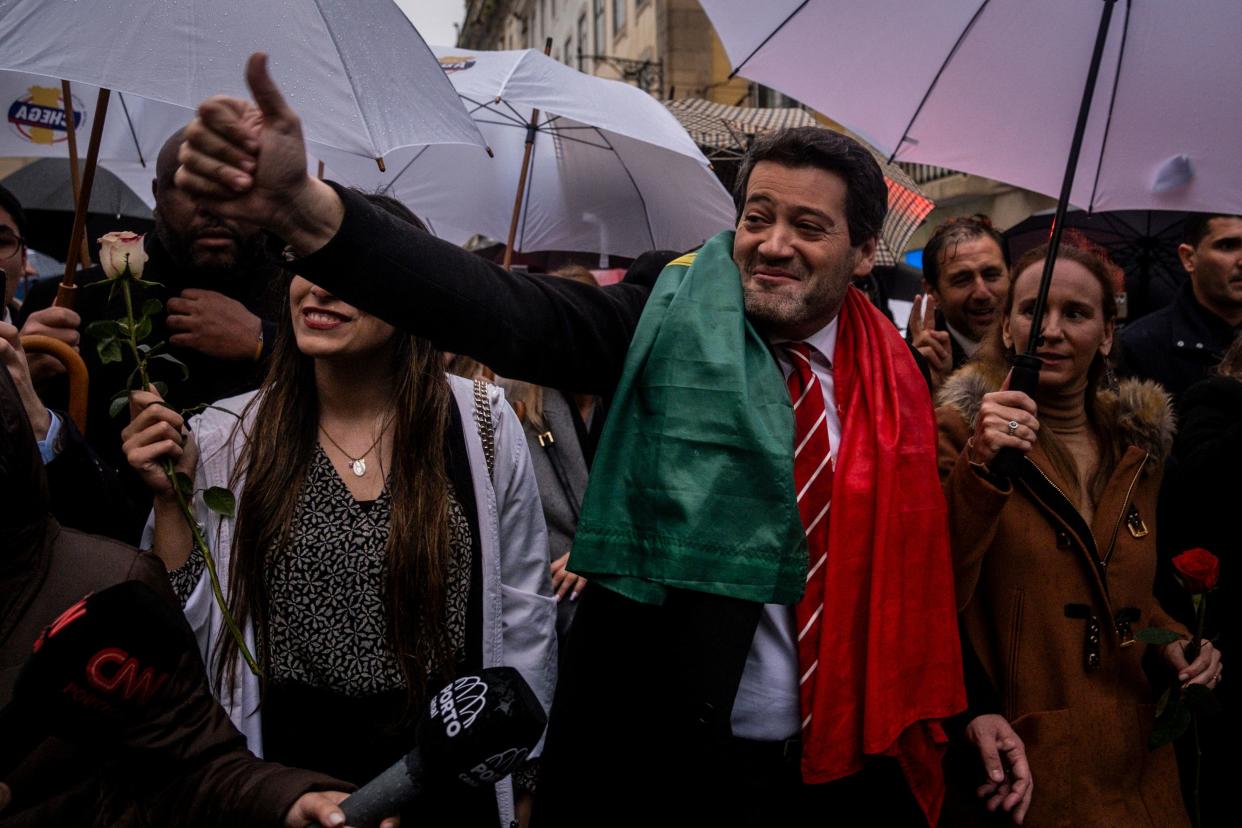Portugal's far-right party surges in parliamentary election

Semafor Signals
Supported by
Insights from UnHerd and Renascença
The News
Portugal’s center-right Democratic Alliance won the most seats in parliamentary elections on Sunday, but it was the far-right Chega party that celebrated victory.
The Democratic Alliance won 79 seats overall, but failed to get a majority in Parliament, meaning it will either have to operate as a minority government or form an alliance. Chega meanwhile won at least 48 seats, quadrupling its representation.
DA leader Luís Montenegro said he would refuse to form a government with Chega, disavowing the party’s populist rhetoric. But experts worry that an unstable coalition will further fuel far-right politics in Portugal, which had so far been a rare European Union country untouched by the continent’s far-right movement.
SIGNALS
Chega’s rise is a warning to European centrists
The DA can either strike a deal with its center-left opponents, or break its promise and join forces with Chega. Compromise between the left and the right, however, “comes at a price,” journalist Peter Franklin argued for UnHerd: In these coalitions, “elections become less meaningful and governing establishments become calcified.” The left-right centrism designed to exclude populists could backfire if the coalition fails to tackle Portugal’s ongoing crises, including high levels of migration and soaring rents. The challenges mirror those that drove the rise of the AfD in Germany and Geert Wilders’ victory in the Netherlands. In both countries, centrist coalitions left problems “to fester and voter frustrations build up,” Franklin wrote.
Chega’s calmer rhetoric doesn’t mean it has become more moderate
Chega and party leader André Ventura used a well-trodden populist playbook to gain their footing, according to Portuguese radio outlet Renascença. The party shocked voters by saying things “that many people probably already felt … but did not say openly,” one University of Oxford populism researcher told the station, with Chega becoming known for its anti-Roma sentiment many opponents have labeled as racist. That branding helped put Chega on the map, but Renascença noted that Roma issues never made the debate stage: Ventura’s rhetoric became more subdued while talking on issues like migration as a whole. This more moderate approach ultimately helped draw voters from the center-right, but the station warned that “old flags have fallen into oblivion.” Ventura was likely moderating his voice, Renascença said, until he gained power.
